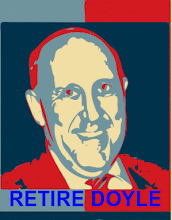A new study by the National Association of Manufacturers (NAM) predicts widespread economic hardship for Wisconsin consumers and businesses if Congress adopts the "cap and trade" bill being considered by the U.S. Senate.
The bill is otherwise known as H.R. 2454 or the Waxman-Markey global warming bill.
The U.S. House of Representatives narrowly approved the bill in June.
"Wisconsin citizens can expect higher electric bills, higher heating bills and higher gasoline prices if Congress passes the Waxman-Markey bill," said James Haney, president of the Wisconsin Manufacturers & Commerce (WMC). "At a time when we are struggling to keep high-paying manufacturing jobs in our state, this bill would take us in the wrong direction with tens of thousands of additional lost jobs."
Wisconsin consumers and employers would be hit disproportionately hard by global warming regulations because of the state's significant investment in coal-fired electricity, and the state's status as the single-most manufacturing intensive economy in the country, according to the WMC.
The study found that key Wisconsin industrial sectors, including papermaking, machinery manufacturing and other energy intensive industries, would lose thousands of manufacturing jobs as a result of higher energy costs stemming from Waxman-Markey.
"Wisconsin businesses are faced with a highly competitive international marketplace where it is becoming increasingly difficult to compete on cost," said Thomas Howatt, president and chief executive officer of Wausau Paper of Wausau. "Driving up the cost of energy in Wisconsin with regulations like cap and trade will put us at a severe competitive disadvantage with our foreign competition."
Specifically, the NAM study predicted between 41,600 and 56,700 lost jobs in Wisconsin by 2030, depending upon the future price of carbon permits. Those figures are expected to worsen as the H.R. 2454 energy rationing plan reaches full implementation by the year 2050. Since 1999, Wisconsin has lost 160,000 manufacturing jobs, and the state's unemployment rate is at 9 percent, the WMC said.
In addition to the lost manufacturing jobs, the NAM study concludes that Wisconsin consumers would face substantial energy cost increases as a result of the Waxman-Markey legislation, taking a significant toll on the state's overall economy.
According to this Journal Sentinel article Jim Doyle embraces cap and trade. "Regional plan is full steam ahead."
I've got an idea Governor, let's work on supporting bills that will ENCOURAGE businesses to come to Wisconsin and actually CREATE jobs. I'm tired of your efforts to scare business and jobs away!

No comments:
Post a Comment